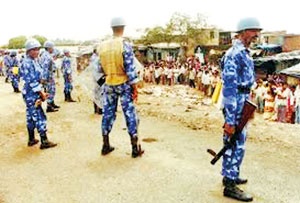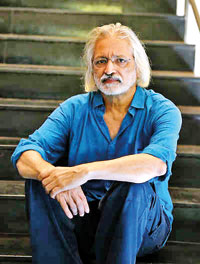Amid pandemic Goethe gives life to cinema
View(s):‘Jai Bhim Comrade’- Indian Documentary film on Ramabai Killings

A scene from film Jai Bhim Comrade
While Covid-19 pandemic has hit everything including cinema and theatre performances, Goethe Institute in Colombo continues with its cultural programme and presents online film screenings. Internationally awarded Hindi documentary film ‘Jai Bhim Comrade’ directed by Anand Patwardhan will be screened online at 5 pm on February 17.
This 2011 film begins with a description of police violence in the 1997 Ramabai killings won rave reviews and won a multiple awards at a number of film festivals including the Best Film, at Film South Asia, Kathmandu, Nepal, the Best Film at Mumbai International Film Festival, the Best Documentary at the Hong Kong International Film Festival, the Bartok Prize at Jean Rouch International Film Festival, Paris, France, the Special Jury Award at the National Awards, India and the Golden Camel award at the Jaipur International Film Festival.

Filmmaker Ananda Patwardhan
For thousands of years India’s Dalits were abhorred as “untouchables,” denied education and treated as bonded labour. By 1923 Bhimrao Ambedkar broke the taboo, won doctorates abroad and fought for the emancipation of his people. He drafted India’s Constitution, led his followers to discard Hinduism for Buddhism. His legend still spreads through poetry and song. In 1997 a statue of Dr. Ambedkar in a Dalit colony in Mumbai was desecrated with footwear. As angry residents gathered, police opened fire killing 10. Vilas Ghogre, a leftist poet, hung himself in protest. Jai Bhim Comrade shot over 14 years, follows the poetry and music of people like Vilas and marks a subaltern tradition of reason that, from the days of the Buddha, has fought superstition and religious bigotry.
Anand Patwardhan has been making political documentaries for over four decades pursuing diverse and controversial issues that are at the crux of social and political life in India. Many of his films were at one time or another banned by state television channels in India and became the subject of litigation by Anand who successfully challenged the censorship rulings in court.
A BA Graduate in English Literature from Bombay University in 1970, Ananda earned his Master’s degree in Communications from McGill University in 1982.Anand has been an activist ever since he was a student — having participated in the anti-Vietnam War movement; being a volunteer in Caesar Chavez’s United Farm Worker’s Union; working in Kishore Bharati, a rural development and education project in central India; and participating in the Bihar anti-corruption movement in 1974-75 and in the civil liberties and democratic rights movement during and after the 1975-77 Emergency. Since then he has been active in movements for housing rights of the urban poor, for communal harmony and participated in movements against unjust, unsustainable development, miltarism and nuclear nationalism.
The film could be watched by a Vimeo live link which will be available on Sri Lanka Goethe Institute website on February 17 at 5:00 p.m.



